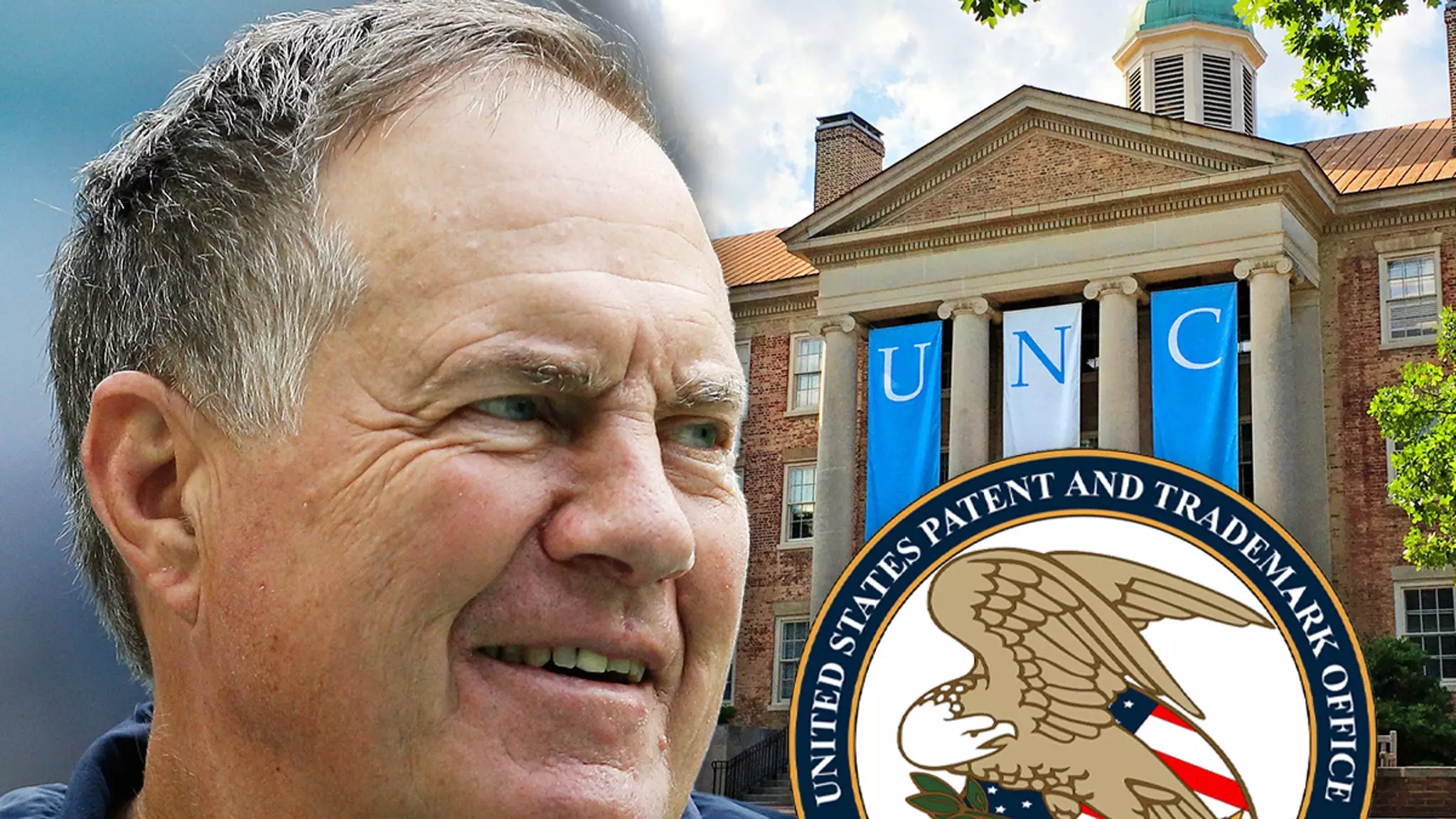In the world of college sports, branding can be just as pivotal as the games played on the field. This week, a North Carolina super fan, Anthony Proscia, seized what he believed was an invaluable opportunity following the surprising announcement of Bill Belichick’s involvement with the University of North Carolina’s (UNC) football program. Proscia, a 2000 graduate of UNC, swiftly filed to trademark the phrase “Chapel Bill.” This swift action underscores the immediate cultural relevance of a phrase created in the wake of Belichick’s decision, linking the iconic coach to the historic town of Chapel Hill, where the university is located.
The moniker “Chapel Bill” cleverly fuses Belichick’s name with the university’s location, not only creating a catchy nickname but also igniting excitement and engagement among Tar Heel supporters. Utilizing this phrase on social media has allowed UNC’s official accounts to deepen their connection with fans, fostering a sense of community and shared enthusiasm for the new chapter in the team’s history.
Proscia’s trademark filing also highlights a defensive measure against the school’s traditional rivalries, particularly with Duke University and NC State. By securing the rights to such a popular term early, he aimed to prevent rival factions from diluting or monopolizing the phrase for their own gain. This kind of preemptive move is increasingly common in collegiate sports, where brand identity is closely tied to school pride and competition.
As the landscape of college athletics evolves, university branding has gained a dimension where every slogan and catchphrase could serve as an additional source of revenue. The growing phenomenon of Name, Image, and Likeness (NIL) rules has opened up new financial avenues for universities, encouraging supporters like Proscia to take proactive steps in ensuring their communities benefit from emerging trends, both financially and culturally.
Belichick’s involvement is expected to bring with it significant financial leverage, with estimates suggesting he could help generate upwards of $20 million to enhance recruitment efforts. As such, Proscia’s efforts in trademarking “Chapel Bill” could potentially coincide with a wave of merchandise interests, elevating the brand further as excitement surrounding the coach grows. Should the UNC athletic department or Belichick personally express interest in the trademark, Proscia indicated he would entertain a transfer of the trademark rights, thus solidifying a collaborative effort to boost the Tar Heels’ visibility.
However, it’s crucial to understand that filing for a trademark doesn’t guarantee instant ownership. There exists a complex approval process which can involve disputes and competition for similar trademarks—meaning that while Proscia may have acted first, uncertainty lingers if he will retain the rights to the catchy phrase.
Ultimately, the saga of “Chapel Bill” encapsulates the rapidly changing dynamics of college sports. As enthusiasm for UNC football reaches new heights with Belichick at the helm, Proscia’s initiative illustrates a broader trend of blending fandom with strategic ventures that hinge on national conversations surrounding iconic figures. As UNC continues to forge its identity in this exhilarating era, the outcome of this trademark filing could serve as a touchstone for how fans can dynamically engage with and support their favorite institutions. As all eyes turn to the upcoming months, it will be intriguing to see how both the phrase and the program develop in this thrilling new chapter.

